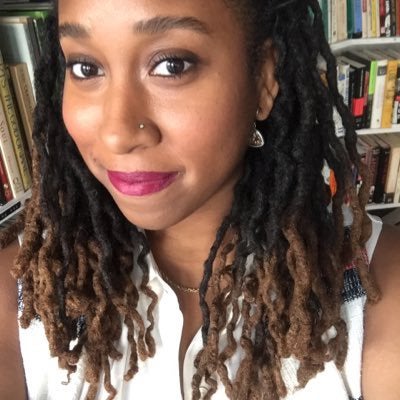
Kaya Thomas is destined for greatness.
She is only a junior in college at Dartmouth, but she has already launched a wildly successful app and is determined to bring some much-needed voices of color to the Whitewashed tech industry. And her hard work is not going unrecognized: Just last month, she was appointed as a role model for Google’s Made With Code, an initiative that offers girls free coding lessons and tutorials in the hopes of bringing more women to the tech industry.
We caught up with the 20-year-old, where she told us all about her plans for post-graduation and why exactly diversifying the tech industry is so dang important. Get ready to be #BlackGirlMagic inspired!
How did you get into coding?
I actually got into coding completely randomly. I started off as an environmental engineering major, but after my first quarter, I wanted to change it; I just didn’t know what to change it to. I was on winter break when I came across a TED Talk by Kimberly Bryant, the founder of Black Girls Code, as well as a short documentary by She++, a women in computer science organization at Stanford. Kimberly Bryant’s TED Talk stood out to me because she talked about how we use this technology so often, but we need to be more than consumers; we need to be the creators of this technology that we love and use everyday. So I Googled “learn coding for free,” I came across Codecademy, and over my whole winter break, I just learned to code. My next quarter, I signed up for a computer science class, and I’ve kind of been hooked ever since.
ESSENCE Debuts ‘Black Girl Magic’ Docuseries Highlighting Black Filmmakers and Teen Girls
You also went on to create the app We Read Too, which compiles a list of children’s and YA books with characters of color. Can you tell me about that?
I’ve always been such an avid reader, and when I was younger, my parents worked really hard to figure out how they could get me books where the characters looked like me. As I got older and started going to the library by myself, I began to miss that. I started to think, “Why aren’t there any Black girl characters in these books?” and if there were, they were these tragic stories about the girl getting pregnant or dropping out of school. That was just not an experience that I relate to. I wanted to read books where the Black girl was a nerd like me or she was succeeding and thriving. So after my freshman year of college, I looked online for books by Black, Native American and Latino authors where the characters were also characters of color, and I launched We Read Too. There are now over 600 books in the app, which has been really, really great. But it’s not just an app for people of color. It’s also an app for everyone to realize that these stories exist and that everyone should be reading them.
What do you want those young women who look up to you to take from your success?
I just want the young women to see that they can do the same thing. I think often times, when you see young people succeeding, you think that they’re exception, like they’re just this exceptionally amazing person, and that’s just them, but I’m not like that. I don’t want young women to think like that. I haven’t been coding since I was 10, and a lot of times in the tech industry, that is a trope. I want young women to see that you can start at any time and still achieve great things.
You’re still early in your career, but I’ve heard a lot of women in tech who have expressed frustration at not being able to find a mentor who looks like them. What advice can you offer our readers when they are in a field where they are a “unicorn”?
I’m a junior at Dartmouth, and I’m the only Black woman studying computer science in the class of 2017. For me, online communities have been great because I’ve been able to reach out to both Black women who are older than me and who are my peers studying computer science. A lot of times, there are great conversations that are going on online, and you can really get in touch with a lot of people. If you’re in an industry where you are a unicorn, definitely get online and try to find other women who are going through the same thing because that can really help.
VIDEO: Kelly Rowland, Tika Sumpter, Meagan Good and More on What #BlackGirlMagic Really Means
We obviously need more minorities and women in tech, but what do you think Black women can uniquely bring to the tech table?
I think women and women of color and people of color are some of the most creative and some of the most creative people in the world. When you look at social media, a lot of the things that are trending comes from the creative minds of Black women and Black people. Black people have been some of the most inventive groups, especially in the face of the things that our community has had to go through throughout history, and I think that survival that we’ve had to overcome has forced us to really be creative in the way we live our lives. Diversity goes on so many levels. If you’re making a tech product that is supposed to reach everyone in the world, it really wouldn’t make sense if you only had one group of people making that product. You want as many people from as many different backgrounds and walks of life to be making those products so that you can really understand so many more users.
